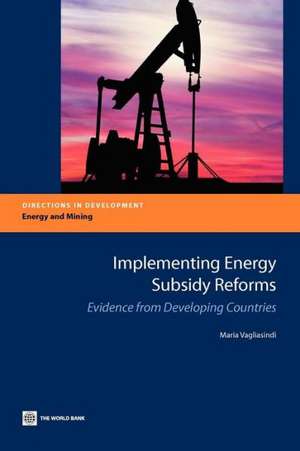Implementing Energy Subsidy Reforms: Evidence from Developing Countries: Directions in Development: Energy and Mining
Autor Maria Vagliasindien Limba Engleză Paperback – 5 noi 2012
Preț: 240.64 lei
Nou
Puncte Express: 361
Preț estimativ în valută:
46.05€ • 48.20$ • 38.33£
46.05€ • 48.20$ • 38.33£
Carte tipărită la comandă
Livrare economică 31 martie-14 aprilie
Preluare comenzi: 021 569.72.76
Specificații
ISBN-13: 9780821395615
ISBN-10: 0821395610
Pagini: 317
Dimensiuni: 152 x 229 x 18 mm
Greutate: 0.46 kg
Editura: World Bank Publications
Seria Directions in Development: Energy and Mining
ISBN-10: 0821395610
Pagini: 317
Dimensiuni: 152 x 229 x 18 mm
Greutate: 0.46 kg
Editura: World Bank Publications
Seria Directions in Development: Energy and Mining


















